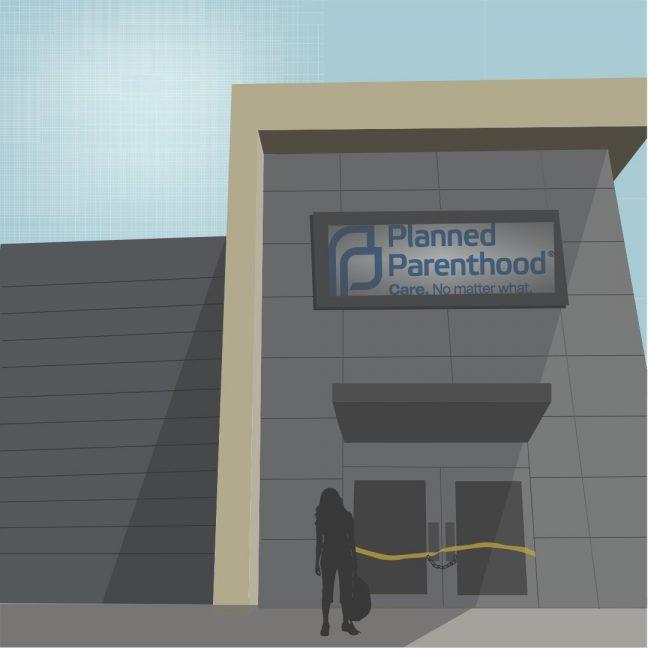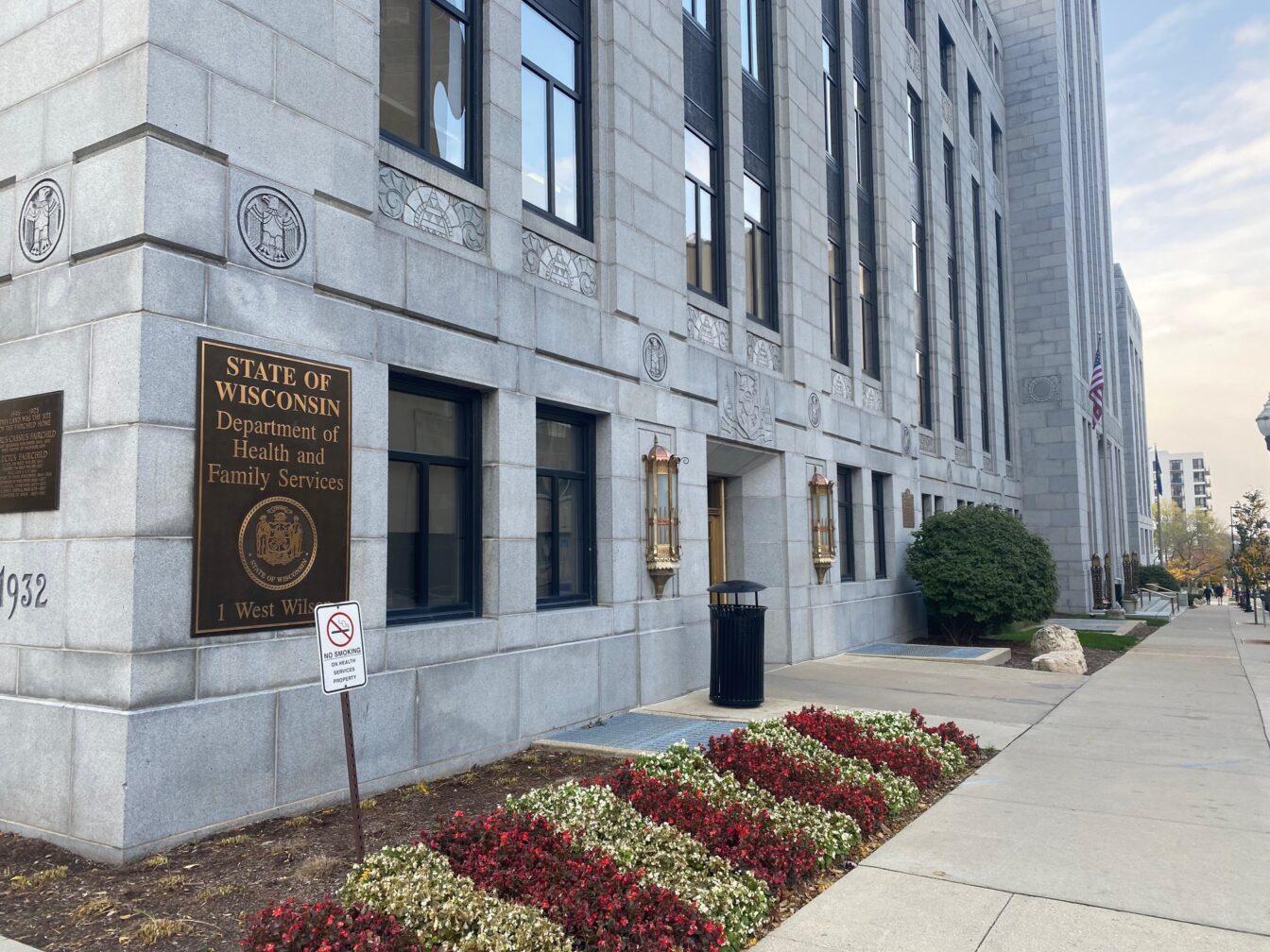As conservative efforts across the country have limited access to abortion clinics, the question of whether or not recent legislation actually prevents women from ending their pregnancies has emerged at the forefront of the debate over women’s health.
More than 5,400 women received abortions in Wisconsin last year despite the fact that, after the recent closing of the Appleton Planned Parenthood, the state has only three abortion clinics, two in Milwaukee and one in Madison.
From requiring a 24 hour waiting period for every abortion to defunding Planned Parenthood, abortion accessibility in Wisconsin has declined since Gov. Scott Walker came to office.
Wisconsin now has only two Planned Parenthood abortion clinics
Closing clinics, limiting access
Eliza Cussen, executive director of NARAL Pro-Choice Wisconsin, said while abortion is “safer than a tooth extraction,” when clinics become less accessible, women have fewer options to deal with unplanned pregnancy.
Cussen said women with limited abortion access sometimes try to induce miscarriages at home, similar to how they did before abortion was legalized. Cussen said the chance of getting bacterial infections is very high when a woman attempts to end a pregnancy herself.
“These laws are not dissuading women from ending their pregnancies, [they’re] just making life harder for those women,” Cussen said. “So really the main consequence of this is putting women’s lives at risk.”
Cussen said especially when it comes to college students, an unplanned pregnancy can get in the way of their goals for the future.
“The freedom to decide what happens when you get pregnant really determines how much freedom you have in every other area of your life,” Cussen said.
Wisconsin Right to Life is working to make abortion illegal so women don’t have to choose between career or schooling and getting an abortion, Chelsea Shields, Wisconsin Right to Life PAC director, said.
“We are happy that in the state of Wisconsin things have gotten to the point that they are now,” Shields said. “But our ultimate goal is that no woman would have to be put in any place that she would have to travel to get an abortion, that she would even have to contemplate an abortion decision.”
Rep. Melissa Sargent, D-Madison, said while attending the University of Wisconsin, a Planned Parenthood clinic on Mifflin Street helped her deal with a pre-cancerous scare. She said through the clinic, which did not offer abortions, she was able to get her annual exam and access to birth control within the student community without stressing over cost.
“I know I was lucky being at Madison,” Sargent said. “I know that there are many people who have to drive in their cars for hours to just get a check up at a Planned Parenthood clinic.”
Sargent said as legislation limits abortion access, people who are financially stable are going to continue getting abortions, but college students and those in poverty are going to struggle.
“These laws are not dissuading women from ending their pregnancies, [they’re] just making life harder for those women. So really the main consequence of this is putting women’s lives at risk.”
According to the Guttmacher Institute, a research organization for sexual and reproductive health in the U.S., more than 60 percent of women in the U.S. who make the decision to end a pregnancy already have at least one child.
Nicole Safar, director of government relations at Planned Parenthood of Wisconsin, said many women consider having an abortion to be a “parenting decision.”
“Whether it’s parenting the children that she has or putting herself in the best position to parent the children she will have in the future, I think that is what a lot of women are thinking about,” Safar said.
According to the Wisconsin Department of Health Services, from 2014 to 2015, there was a 3 percent decrease in the number of Wisconsin women who received abortions. Cussen said the declining number is not because fewer women are choosing to get abortions, instead, fewer women are facing unwanted pregnancies.
Women are getting better at using birth control and birth control effectiveness itself is getting better, Safar said.
“As birth control becomes more effective, that rate of unintended pregnancies drops and along with that, the abortion rate also drops,” Safar said.
UHS support for students
University Health Services works to ensure they are immediately available as a resource for pregnant students at UW and provides ongoing support throughout the entire decision-making process, UHS OB-GYN Mary Landry said.
“Our support for pregnant students is and always will be high priority because when it happens, particularly in the context of it being unplanned, it can cause women to have every moment of the day until they become comfortable with their future plans, it consumes them,” Landry said.

Having an abortion can be a traumatic experience for students, Landry said, and can prevent them from focusing on their academic goals.
UHS discusses the available options with a pregnant student and help her make the best decision for herself, Landry said.
“We communicate with them after they’ve shared with us whether it was a planned or unplanned pregnancy and sometimes, at the time they come in, they’ll know if it’s wanted or unwanted,” Landry said. “But depending upon where they are in the process of decision making, we talk with them about all the options available.”
Planned Parenthood is the only clinic that performs abortions in the Madison area that UHS can refer students to, Landry said. But students also have the option of traveling outside Madison or even Wisconsin for the procedure. More than 50 percent of UW students who access abortion services, however, go to Planned Parenthood in Madison, Landry said.
UHS works to support students before, during and after the decision-making process. UHS provides students with follow-up care after they have an abortion so they don’t have to return to Planned Parenthood, Landry said.
Abortion is one of the only women’s health services that UHS doesn’t perform itself, Landry said.
“I’m very proud of my colleagues [at Planned Parenthood] in Madison because they are working very hard to make sure that abortion services continue to be available for all women in Madison,” Landry said.
Cutting Planned Parenthood
Planned Parenthood provides prevention-based, comprehensive reproductive health care at most of their centers, Safar said. There are two Planned Parenthood centers in Wisconsin, one in Madison and one in Milwaukee, that offer abortion services.
According to the Guttmacher Institute, 96 percent of Wisconsin counties didn’t have an abortion clinic in 2011 even though 67 percent of Wisconsin women lived in those counties.
Safar said Planned Parenthood offers cancer screenings, Pap smears, clinical breast exams, STD testing and treatment, STD prevention education, birth control services, pregnancy tests and referrals for prenatal care, mammograms and adoption services, in addition to abortion.
Gov. Scott Walker and his administration have impacted those services over the last six years through funding cuts, Safar said.

Federal and state law requires Planned Parenthood to keep funding for the reproductive health care services and funding for abortion services completely separate, Safar said. No funding for abortion services can come from federal, state or local money.
These state funding cuts, however, haven’t impacted abortion services because state funding never supported them in the first place, Safar said.
Shields said Planned Parenthood is a bad use of taxpayer funds and Walker’s legislation redirects that money to other organizations for better use.
Insurance coverage
Cussen said a number of private insurance companies cover abortion in Wisconsin. Since it is an expensive procedure and costs anywhere between $400 and $600, money can be a barrier for many women, especially young women, looking for the procedure.
Health insurance, however, is not a great option anymore for many women because of restrictive state laws.
Cussen said the Hyde Amendment prevents federal funds from going toward abortion services so anyone employed and insured by the federal government does not have abortion insurance coverage. But if the pregnancy is dangerous to the woman, occurred out of incest or rape, insurance would cover the procedure. Walker extended the act to the state level in 2012.
Abortion is the only service insurance companies are legally prohibited from covering, Safar said. Because of the laws Walker has put into place, the cost of abortion is out-of-pocket for many women.
Additionally, Sargent said she has seen some businesses in the private sector negotiate deals with their insurance companies to not cover birth control for women.
She said it is upsetting that though lawmakers can provide women with comprehensive health care by allowing insurance companies to cover abortion, the Legislature is choosing not to.
“There are so many things we could be doing if we actually wanted to be talking about forwarding reproductive health and forwarding equality for women,” Sargent said. “Unfortunately it seems like we are sliding backwards.”
Additional state restrictions
In addition to insurance legislation, there are several other state laws that restrict abortion access.
Wisconsin has a 24-hour mandatory delay in place, so after a woman decides to have an abortion, she has to go through state-scripted counseling, in which the state tells doctors what they have to say to their patients about abortion. Then the patient must wait at least 24 hours before she can have the abortion performed, Safar said.
“There are so many things we could be doing if we actually wanted to be talking about forwarding reproductive health and forwarding equality for women. Unfortunately it seems like we are sliding backwards.”
Because of this delay, women often have to make two trips and schedule two appointments at Planned Parenthood and that can be a huge inconvenience for women who live outside of Madison or Milwaukee, Safar said.
Women in Wisconsin are also required to have an ultrasound performed before they are able to have an abortion.
Shields said Wisconsin Right to Life works to pass legislation to restrict abortion access both to protect unborn children and educate women on the decision they are making.
“We look at legislation as an opportunity, not only to protect unborn children under the law but also give women more opportunities to educate themselves before making the life or death decision of abortion,” Shields said.
Safar said it isn’t easy to access abortion services, even in a community like Madison which actually has a Planned Parenthood center that provides the service.
“[It’s important that we] advocate for laws and policies that ensure women can have access to safe and legal abortion services without all of these unnecessary rules and regulations that are mostly just aimed to intimidate and shame them for making the decision that a women determines is best for her,” Safar said.


















